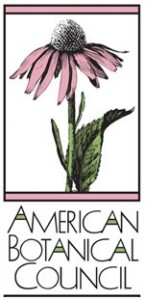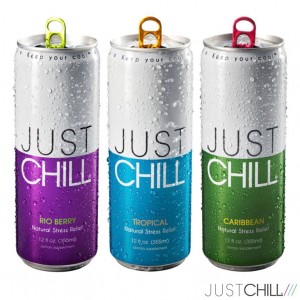
Commonly sold as a dietary supplement and frequently used as an additive in a range of beverages, Ginkgo has been found to cause cancer in mice and rats, according to a two-year study by researchers at the National Toxicology Program (NTP), an interagency program tied to the U.S. Department of Health and Human Services and the National Institutes of Health.
Over the course of the study, NTP researchers gave male and female rats oral dosages of Ginkgo biloba extract five times a week.The study concluded that Ginkgo caused thyroid cancer in male and female rats and male mice and liver cancer in male and female mice.
Following the release of the findings, the ingredient, which is often marketed for having brain-boosting functionality, was downgraded from “safe” to “avoid” by consumer advocacy group The Center for Science in the Public Interest (CSPI).
“Ginkgo has been used in recent years to let companies pretend that supplements or energy drinks with it confer some sort of benefit for memory or concentration,” said CSPI executive director Michael F. Jacobson. “The evidence for those claims has been dubious, at best. The pretend benefits are now outweighed by the real risk of harm.”

“Almost anything will create cancer in rats and mice when it’s fed to them at high doses for two years,” said Bill J. Gurley, Ph.D, professor of pharmaceutical sciences in the College of Pharmacy at the University of Arkansas School for Medical Sciences, Little Rock, and a co-author of a 2012 public comments letter that the ABC sent to the NTP.
While the U.S. Food and Drug Administration (FDA) does not consider Ginkgo to be a safe additive for conventional foods and beverages, the ingredient is permissible for use in products labeled as supplements. And although Ginkgo can be found in drink categories ranging from relaxation and energy to hydration and even aphrodisiac products, the FDA has stated that it has significant safety concerns about the use of Ginkgo, pointing to studies that associate the ingredient with carcinogenic activities in experiments on animals.
The additive is already on its way out of several high-profile beverage lines.

Similarly, less than a month ago, the FDA sent a warning letter to Stewart Brothers, Inc., which manufactures Columbia Gorge Organic juices. The letter, dated March 28, 2013, stated that the company’s SuperBerry Fruit Juice Drink Blend, which also contains Ginkgo biloba, is considered to be an adulterated product because it includes an unsafe food additive.
“We are not aware of any basis to conclude that Ginkgo is GRAS for use in conventional foods,” the FDA said in its letter.
While companies are allowed to self-affirm an ingredient as GRAS, Justin Prochnow, an attorney with Greenberg Traurig LLP who specializes in labeling and regulatory issues affecting the food and beverage industry, noted that the FDA has given some indication that it will dispute that GRAS affirmation.
Although Rockstar didn’t agree with the FDA’s stance on Ginkgo and certainly has the financial resources to achieve self-affirmed GRAS status for the ingredient, after receiving the warning letter, the company opted to discontinue the ingredient from the line. Rockstar made the transition in formulation beginning in July and was not required to issue a recall.

“We want to position ourselves as a safe alternative to anything else in the [relaxation] category,” Baumann said.